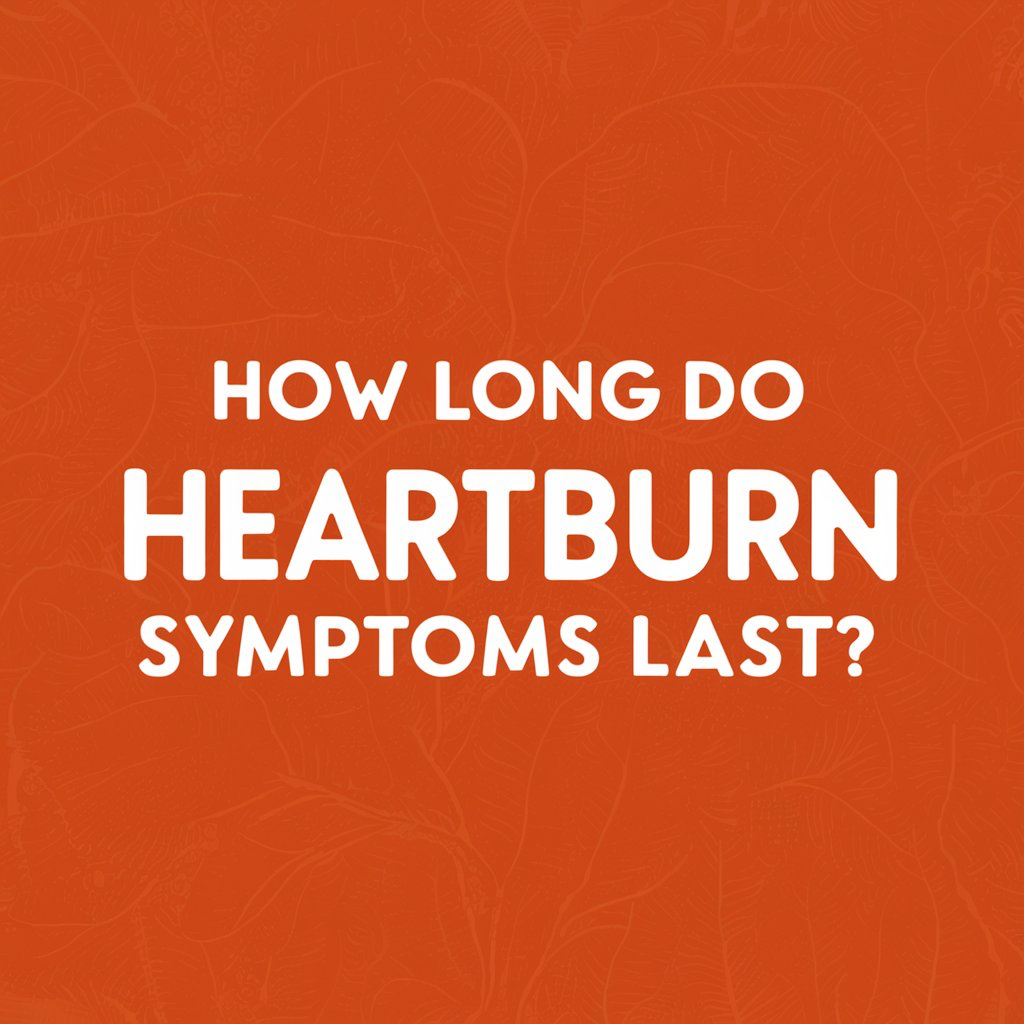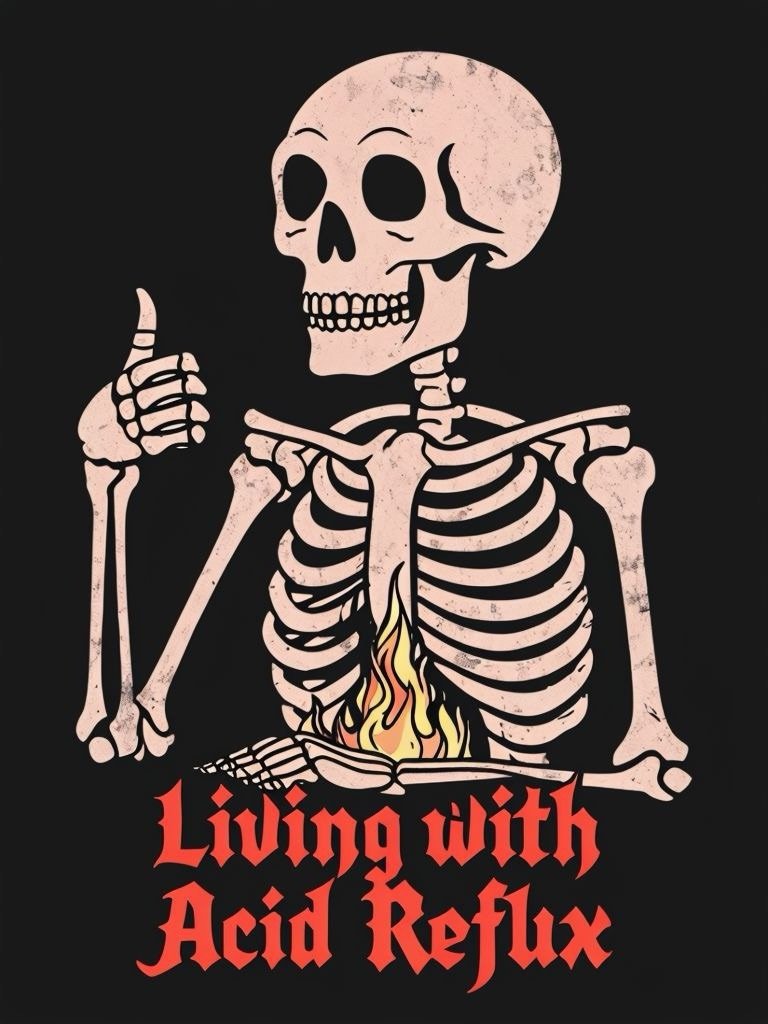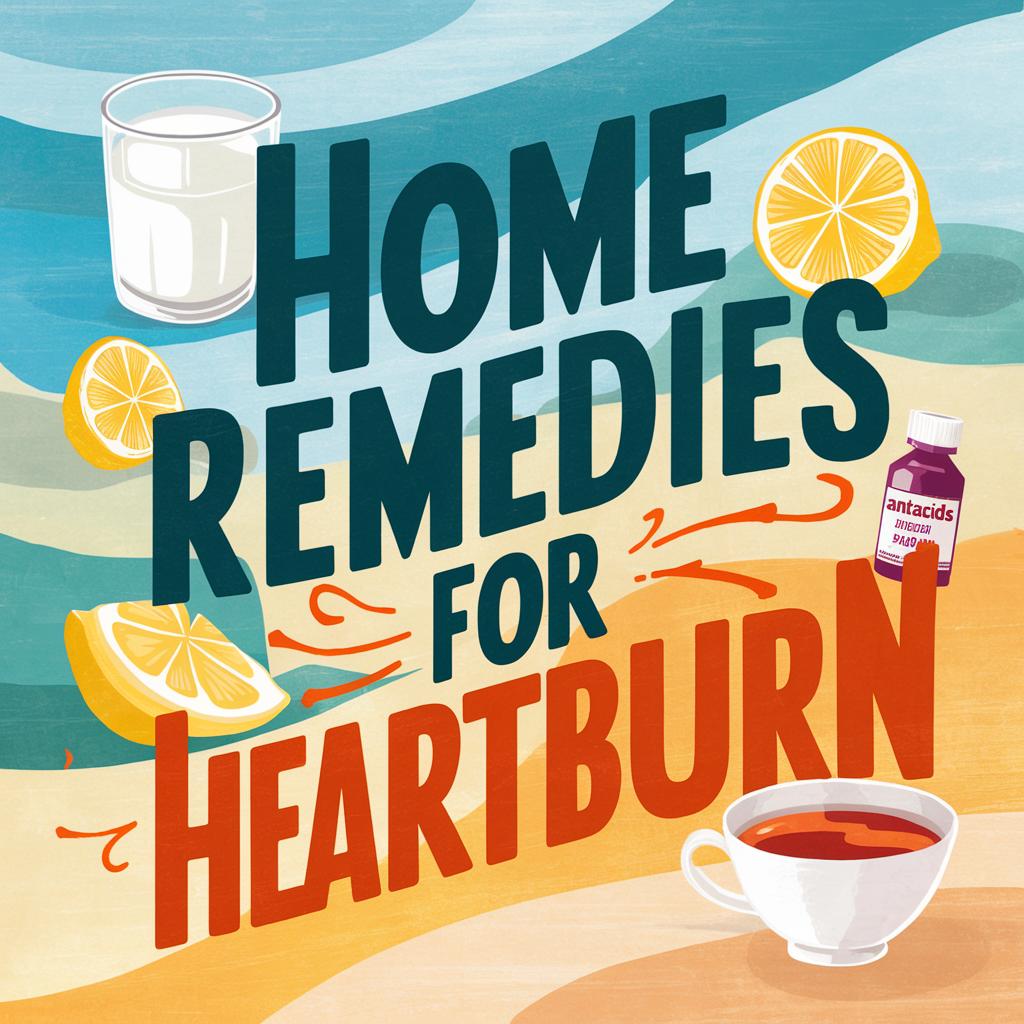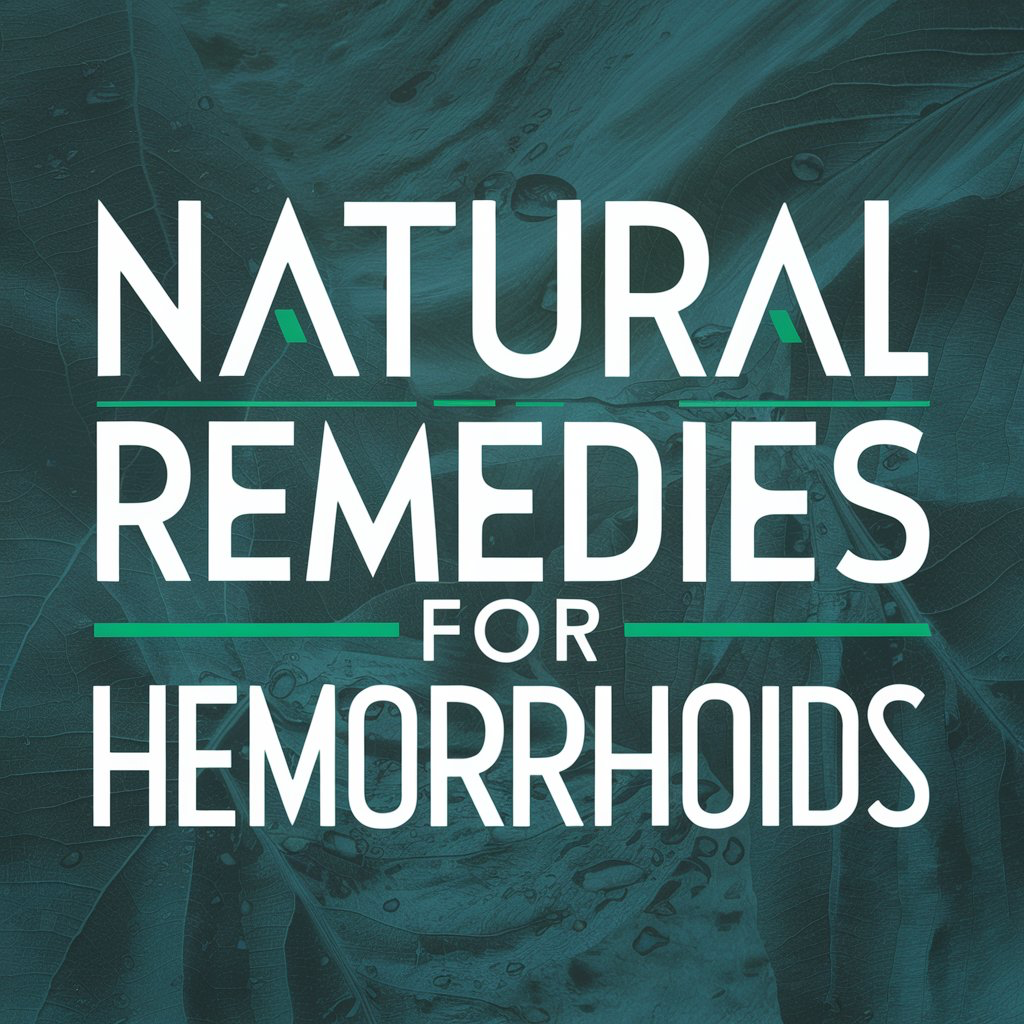
Understanding Heartburn and Its Duration
If you’ve ever experienced the discomfort of heartburn, you know how frustrating it can be. That burning sensation in your chest, often after eating, can be more than just a minor annoyance. Understanding how long heartburn symptoms last is key to managing this condition effectively and knowing when it’s time to seek further help.
Heartburn occurs when stomach acid flows back into the esophagus, causing irritation. This often happens after eating certain foods, lying down too soon after a meal, or experiencing stress. The duration of heartburn symptoms can vary widely from person to person, lasting anywhere from a few minutes to several hours. For some, it’s an occasional issue, while for others, it can be a chronic problem that affects their daily life.
Knowing what influences the duration of heartburn can help you take control of your symptoms and find relief more quickly. In this article, we’ll explore the factors that affect how long heartburn lasts, how it relates to acid reflux, and what you can do to manage and reduce the duration of these uncomfortable episodes.

What Affects How Long Heartburn Symptoms Last?
The duration of heartburn symptoms can vary significantly depending on several factors. Understanding these factors can help you better manage the condition and reduce the length of time you spend dealing with discomfort. Here’s a closer look at what influences how long heartburn symptoms last:
1. Diet and Eating Habits: What you eat and how you eat it plays a significant role in how long heartburn symptoms persist. Foods that are high in fat, spicy foods, citrus, and caffeinated beverages are known to trigger heartburn. Additionally, eating large meals or lying down shortly after eating can increase the likelihood of prolonged symptoms. By adjusting your diet and meal timing, you can help reduce the duration of heartburn episodes.
2. Lifestyle Factors: Certain lifestyle habits can also impact how long heartburn lasts. Smoking, excessive alcohol consumption, and high levels of stress are all contributors to prolonged heartburn symptoms. Managing stress through relaxation techniques, reducing alcohol intake, and quitting smoking can all help minimize the duration and severity of heartburn.
3. Underlying Medical Conditions: Chronic heartburn may be a sign of an underlying condition like gastroesophageal reflux disease (GERD). GERD occurs when acid reflux happens frequently, causing ongoing irritation to the esophagus. If heartburn symptoms last for more than a few weeks or occur more than twice a week, it’s important to consult with a healthcare professional to rule out GERD or other related conditions.
4. Medications and Treatments: Over-the-counter antacids and prescription medications can help reduce the severity and duration of heartburn symptoms. However, if symptoms persist despite treatment, it may be a sign that the underlying issue needs to be addressed more comprehensively. Medications that relax the lower esophageal sphincter (such as certain blood pressure or muscle relaxants) can also prolong heartburn, so it’s essential to review any medications with your doctor.
5. Body Position: Your body position, especially after eating, can affect how long heartburn lasts. Lying down or bending over can allow stomach acid to flow more easily into the esophagus, prolonging symptoms. Elevating the head during sleep and staying upright for at least a few hours after meals can help prevent heartburn from lasting longer than it should.

Understanding these factors can help you take proactive steps to manage your heartburn more effectively. In some cases, simple lifestyle adjustments can significantly reduce the duration of symptoms. If you’re looking for additional ways to manage heartburn naturally, consider exploring home remedies for heartburn, which offer effective solutions for quick relief.

How Long Does Acid Reflux Last?
Acid reflux is closely related to heartburn, but it’s essential to understand how they differ and how long each can last. Acid reflux occurs when stomach acid flows back into the esophagus, causing irritation and discomfort. Heartburn is one of the most common symptoms of acid reflux, but acid reflux can also lead to other symptoms like regurgitation, a sour taste in the mouth, and difficulty swallowing.
So, how long does acid reflux last? The duration can vary widely depending on several factors:
1. Duration of Acid Reflux Episodes: For many people, an acid reflux episode can last anywhere from a few minutes to several hours. The severity of the reflux, the underlying cause, and whether or not treatment is applied promptly all play a role in how long the discomfort persists.
For example, after a heavy, greasy meal, you might experience acid reflux that lasts a few hours, especially if you lie down soon after eating. Conversely, if you take antacids or adopt a more upright posture, the symptoms may subside more quickly.
2. Chronic Acid Reflux (GERD): If acid reflux occurs frequently, it may be a sign of gastroesophageal reflux disease (GERD). GERD is a chronic condition where acid reflux happens regularly and can cause long-term damage to the esophagus if left untreated. In cases of GERD, acid reflux symptoms can be more persistent, often lasting throughout the day and night if not managed properly.
3. Triggers and Aggravating Factors: Certain foods and lifestyle habits can prolong acid reflux episodes. Spicy foods, fatty meals, chocolate, caffeine, and alcohol are common triggers. Additionally, stress and obesity can exacerbate symptoms. By identifying and avoiding your specific triggers, you can help shorten the duration of acid reflux episodes.
4. Treatment and Relief: The time it takes for acid reflux to subside often depends on the treatment applied. Over-the-counter antacids can provide quick relief, often within minutes, but the effect may be short-lived. Proton pump inhibitors (PPIs) and H2 blockers can offer longer-lasting relief but may take a little longer to start working.
For those seeking natural ways to manage acid reflux, lifestyle changes and dietary adjustments can also be effective. Exploring home remedies for heartburn might provide additional strategies to reduce the duration and frequency of acid reflux symptoms.
Understanding how long acid reflux lasts and what influences its duration can help you manage the condition more effectively and prevent it from interfering with your daily life.

How Long Can Heartburn Last?
Heartburn, characterized by a burning sensation in the chest, can vary significantly in duration from one person to another. Understanding how long heartburn can last is crucial for managing symptoms and knowing when it might be time to seek medical advice.
1. Typical Duration of Heartburn: For many people, heartburn is a fleeting discomfort that lasts only a few minutes to an hour. This can happen after eating a large meal, consuming spicy or acidic foods, or lying down too soon after eating. In these cases, heartburn usually resolves on its own or with the help of over-the-counter antacids.
2. Prolonged Heartburn Episodes: In some cases, heartburn can persist for several hours or even throughout the day. This prolonged discomfort is often due to continuous acid exposure in the esophagus, which can happen when the lower esophageal sphincter (LES) doesn’t close properly, allowing stomach acid to flow back up. If you find that heartburn is lasting longer than a few hours, it may be due to a more persistent issue like gastroesophageal reflux disease (GERD).
3. When Heartburn Becomes Chronic: Chronic heartburn, where symptoms occur frequently and last for extended periods, is often a sign of GERD. If you experience heartburn more than twice a week or find that it lasts for days at a time, it’s essential to consult with a healthcare provider. Chronic heartburn can lead to complications like esophagitis, Barrett’s esophagus, and even an increased risk of esophageal cancer if left untreated.
4. Factors That Prolong Heartburn: Several factors can cause heartburn to last longer than usual:
- Diet: Consuming foods that trigger acid production, such as citrus, tomatoes, chocolate, and fatty foods, can extend the duration of heartburn.
- Lifestyle Habits: Smoking, excessive alcohol consumption, and lying down after eating can exacerbate heartburn and prolong its effects.
- Stress: High stress levels can increase stomach acid production and make heartburn symptoms more persistent.
5. Seeking Medical Attention: If your heartburn lasts longer than a few hours, occurs frequently, or is accompanied by other symptoms like difficulty swallowing or unintentional weight loss, it’s important to seek medical advice. Persistent heartburn can indicate an underlying condition that requires treatment, such as GERD or a hiatal hernia.

Managing heartburn effectively involves not only treating symptoms as they occur but also taking steps to prevent prolonged episodes. Adopting a healthy diet, maintaining a healthy weight, and avoiding known triggers can significantly reduce the duration of heartburn. For those dealing with chronic or prolonged heartburn, improving overall digestive health is crucial, and resources like TummyCure’s guide to stomach health can offer valuable insights.
Understanding how long heartburn can last and what factors influence its duration is key to finding relief and preventing it from becoming a chronic issue.

How Long Does Acid Reflux Take to Heal?
Healing from acid reflux, particularly when it becomes chronic or develops into gastroesophageal reflux disease (GERD), can take time and often requires a combination of lifestyle changes, dietary adjustments, and medical treatment. Understanding how long acid reflux takes to heal depends on several factors, including the severity of the condition and how well you adhere to a treatment plan.
1. Mild Acid Reflux: For those who experience mild, occasional acid reflux, the healing process can be relatively quick. With minor adjustments, such as avoiding trigger foods, not lying down immediately after eating, and using over-the-counter antacids, symptoms can improve within a few days to a week. Once the immediate symptoms subside, continuing to follow these lifestyle changes can prevent future episodes.
2. Persistent or Moderate Acid Reflux: When acid reflux becomes more frequent or severe, the healing process may take longer. It’s not uncommon for individuals with persistent acid reflux to need several weeks or even months to fully recover. During this time, more substantial lifestyle changes may be necessary, such as:
- Dietary Adjustments: Avoiding foods and beverages that trigger acid production, like spicy foods, alcohol, and caffeine, is crucial.
- Medications: Doctors may prescribe medications such as proton pump inhibitors (PPIs) or H2 blockers, which reduce acid production and allow the esophagus to heal. These medications often require a few weeks of consistent use to see significant improvement.
3. Healing from GERD: In cases of GERD, where acid reflux is chronic, healing can take longer and may require ongoing management. For some, it might take several months to a year to see a substantial reduction in symptoms. In addition to medications, long-term changes in diet, weight management, and possibly surgical interventions (like fundoplication) might be needed to control the condition and allow the esophagus to heal.
4. Factors Affecting Healing Time: The time it takes for acid reflux to heal can be influenced by several factors:
- Severity of the Condition: The more severe the acid reflux, the longer it may take to heal.
- Adherence to Treatment: Strictly following dietary recommendations, lifestyle changes, and medication regimens can significantly speed up the healing process.
- Underlying Health Conditions: Other health issues, such as obesity or a hiatal hernia, can slow down recovery and may require additional treatment.
5. Long-Term Management and Prevention: Even after symptoms have improved, maintaining the changes that led to healing is important for preventing recurrence. This might include continuing to avoid trigger foods, managing stress, and keeping up with any prescribed medications. Additionally, incorporating healthy digestive practices, like those outlined in TummyCure’s guide to using a bidet, can support overall digestive health and comfort.
In summary, how long acid reflux takes to heal can vary widely depending on the individual and the severity of their condition. While mild cases may resolve quickly with simple changes, more persistent acid reflux, particularly GERD, may take longer to manage and heal. The key to successful recovery lies in a comprehensive approach that includes lifestyle changes, dietary adjustments, and, when necessary, medical treatment.

Tips for Reducing the Duration of Heartburn and Acid Reflux
Dealing with heartburn and acid reflux can be frustrating, especially when symptoms linger longer than expected. Fortunately, there are several strategies you can implement to help reduce the duration of these uncomfortable episodes. Here’s how you can manage and potentially shorten how long heartburn symptoms last:
1. Identify and Avoid Trigger Foods: Certain foods and beverages are known to trigger heartburn and acid reflux. These include spicy foods, fatty meals, chocolate, caffeine, alcohol, and acidic foods like tomatoes and citrus fruits. By identifying your specific triggers and eliminating or reducing them in your diet, you can prevent symptoms from lasting longer than necessary.
2. Eat Smaller, More Frequent Meals: Overeating can put extra pressure on the lower esophageal sphincter (LES), increasing the likelihood of acid reflux and prolonged heartburn. Instead of three large meals, try eating smaller, more frequent meals throughout the day. This approach can help manage the amount of stomach acid produced and reduce the duration of symptoms.
3. Stay Upright After Eating: Lying down or bending over after a meal can cause stomach acid to flow back into the esophagus, leading to prolonged heartburn. To prevent this, try to stay upright for at least 2-3 hours after eating. If you need to rest, prop up your upper body with pillows or consider elevating the head of your bed to reduce nighttime symptoms.
4. Use Over-the-Counter Remedies: Over-the-counter antacids, H2 blockers, or proton pump inhibitors (PPIs) can provide quick relief and reduce the duration of heartburn and acid reflux symptoms. Antacids work by neutralizing stomach acid, while H2 blockers and PPIs reduce the amount of acid your stomach produces. Be sure to use these medications as directed and consult with a healthcare provider if symptoms persist.

5. Manage Stress: Stress is a known contributor to digestive issues, including heartburn and acid reflux. High levels of stress can increase stomach acid production and slow down digestion, leading to prolonged symptoms. Incorporating stress-reducing activities like yoga, meditation, deep breathing exercises, and regular physical activity can help alleviate stress and reduce the duration of heartburn.
6. Consider Natural Remedies: For those looking for alternative approaches, natural remedies can be effective in managing and reducing the duration of heartburn. Ginger, for example, is known for its soothing effects on the digestive system and may help reduce acid reflux symptoms. Home remedies for heartburn, such as drinking ginger tea or apple cider vinegar diluted in water, can provide quick relief without relying on medications.
7. Focus on Overall Digestive Health: Maintaining good digestive health is crucial for preventing prolonged heartburn and acid reflux. Eating a balanced diet rich in fiber, staying hydrated, and incorporating probiotics into your routine can support a healthy digestive system. Resources like TummyCure’s guide to stomach health offer valuable tips on how to keep your digestive system functioning optimally.
By implementing these strategies, you can take control of your heartburn and acid reflux symptoms, reducing both their frequency and duration. Remember that persistent or severe symptoms should always be discussed with a healthcare provider to rule out underlying conditions like GERD.


As an Amazon Associate we earn from qualifying purchases through some links in our articles.



